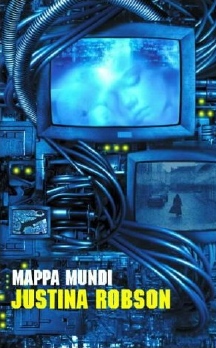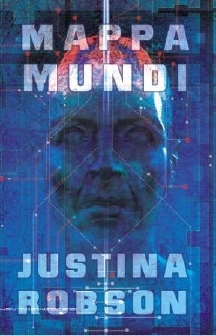One of the hardest things for an SF author to do is to go from
the present to their 'invented' future. In Mappa Mundi, Justina Robson
effectively blurs the former into the latter, creating a scenario that
grows out of the present -- and most importantly -- out of the characters.
Her endpoint near-future is a mere blur of today, especially in a world
where biotechnology is trying to replace information technology as the
next market-blooming wonder. It's an imperfect world but nonetheless
detailed and fascinating.
In her first novel, 'Silver Screen', Robson dealt with artifical intelligence,
and mind control via nanotechnology is a logical next step. The novel
starts out in the present, setting up her six characters with sketches
from their childhood in the present day. The bulk of the novel is set
in the near future as FBI agents (Amerian Indian) Jude Westhorpe and
his partner Mary Delaney pusue a chameleonic criminal who is importing
illegal biotechnology into the USA. In England, punkish Natalie Armstrong
is a brilliant but troubled scientist working on a nanotech solution
to mental illness. Robson does a great job creating a convincing murky
future that isn't all that much different from the present. Her characters
are complicated and their dialogue rings true. When Jude's sister, a
rebellious woman who still lives on the Indian reservation is nearly
killed, her escape leads Jude to Natalie and her work. And Jude leads
Natalie back to the USA.
Robson's prose is strong and evocative, but at times she's a bit too
murky and hard to follow. She's great at the Suggestion game, mentioning
the outer edges of the changed society of the near future (the Perfectionists
and Anti-Perfectionists). But she gets into problems when she starts
talking about American Party Politics (which happily is not that often).
She does some rather nice extrapolation about the fluidity of identity,
an idea at the core of the novel, and gives the right amount of technical
details -- enough to carry the story and concepts, but not so much as
to start sounding like a lecture. For those who like a thick word stew
of conspiracy, technology and character, 'Mappa Mundi' is a choice to
be heartily recommended.

